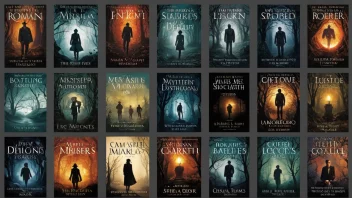Literary fiction often evokes a deep sense of thought and introspection, setting itself apart from mainstream genres through its distinct characteristics. Unlike commercial fiction, which prioritizes plot and entertainment, literary fiction emphasizes character development, thematic depth, and stylistic innovation. This article explores the elements that define literary fiction and why readers find it a compelling genre.
One of the most significant aspects of literary fiction is its focus on character exploration. Authors often delve into the inner lives of their characters, portraying their thoughts, emotions, and conflicts in a way that resonates with readers. The depth of character development invites readers to form connections and reflect on their own experiences. For instance, novels like To Kill a Mockingbird by Harper Lee or The Great Gatsby by F. Scott Fitzgerald showcase characters that embody complex moral dilemmas, allowing readers to engage with the narrative on a personal level.
In addition to character, literary fiction tends to explore profound themes that resonate with the human experience. These themes can range from existentialism and identity to societal issues and moral ambiguity. Works such as The Bell Jar by Sylvia Plath or Beloved by Toni Morrison tackle issues like mental illness and the legacy of slavery, prompting readers to ponder significant societal questions and reflect on the human condition.
Another defining characteristic of literary fiction is its stylistic approach. This genre often features experimental narrative techniques, poetic language, and non-linear storytelling. Authors may play with time, perspective, and structure to enhance the reading experience. For example, in One Hundred Years of Solitude by Gabriel García Márquez, the magical realism serves to blur the lines between reality and fantasy, creating a rich tapestry that draws readers into the world of the Buendía family.
Moreover, literary fiction often lacks the conventional plot-driven structure found in popular fiction. Instead, it may prioritize atmosphere and mood over a clear narrative arc. This can lead to a more immersive reading experience, where the journey is as important as the destination. Readers may find themselves lost in the prose, savoring the language and the subtleties of the characters’ journeys.
While literary fiction may not always achieve bestseller status, it plays a crucial role in the literary landscape by challenging readers to engage critically with the text. It encourages discussions about life's complexities and fosters a deeper appreciation for the art of storytelling. As more readers seek meaningful experiences through literature, the relevance of literary fiction continues to grow.
In conclusion, literary fiction stands apart due to its emphasis on character depth, thematic exploration, stylistic innovation, and a unique narrative approach. It invites readers to reflect on their beliefs and experiences, making it a rich genre for those who seek more than just entertainment from their reading. By engaging with literary fiction, readers not only enjoy a story but also embark on a profound journey of introspection and understanding.






